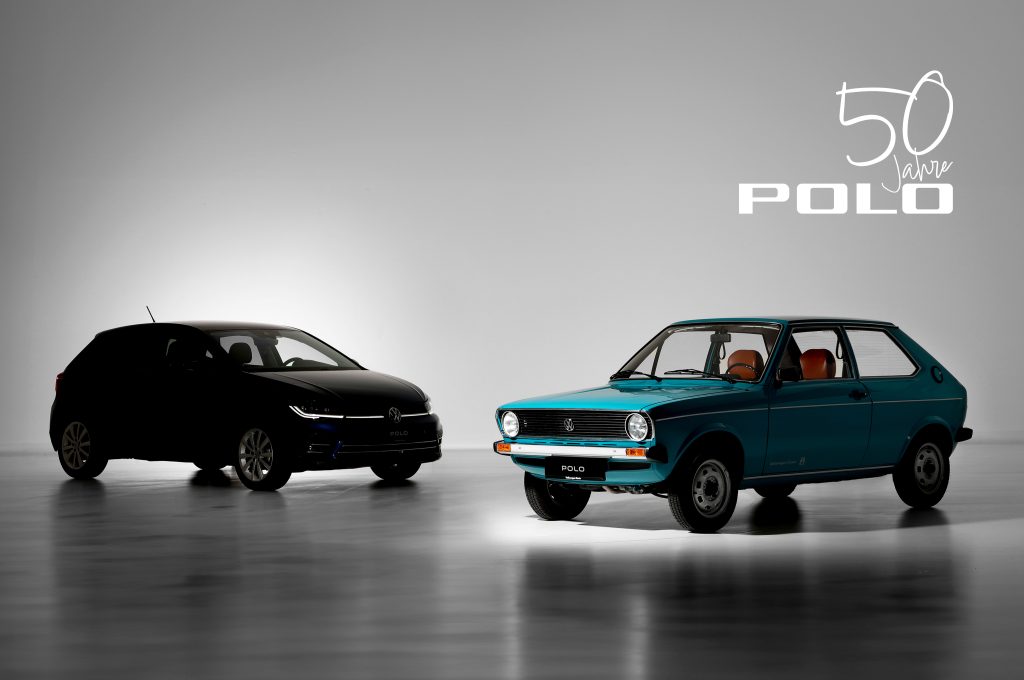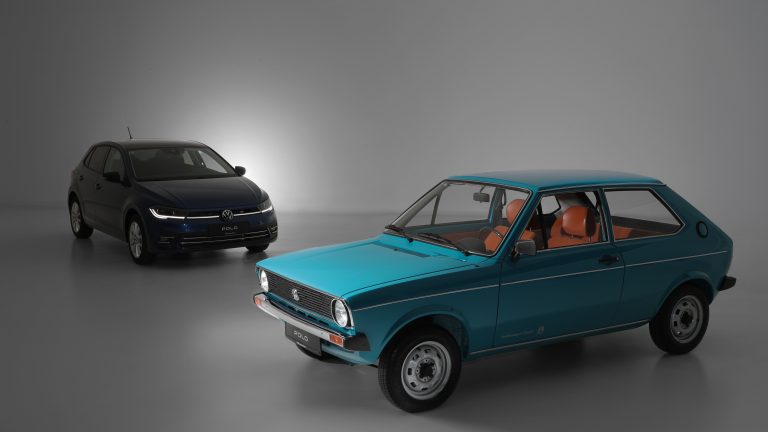The VW Polo has been setting trends in the small car segment since 1975 and represents typical Volkswagen virtues such as quality, safety and comfort
Since 1975, the Volkswagen Polo has delighted generations of people and has become a pioneer in its class: it has always stood for affordable mobility, timeless design and pioneering technology. With more than 20 million vehicles sold in six generations, the Polo has established itself as one of the most successful models in its class. In 2025, Volkswagen is celebrating the 50th anniversary of the small compact car.
When the VW Beetle was due to be replaced in the 1970s, Volkswagen had several models up its sleeve: the Passat came on to the market in 1973, followed a year later by the Golf, while the Polo made its debut in 1975. No vehicle before had been so short and refined. Positioned a class below the Golf, the Polo perfectly rounded off the then new model family with front-wheel drive. Now, 50 years later and in its sixth generation, the Polo has proven how a small car can assert itself confidently in a likeable way. More than 20 million cars sold speak for themselves.
Affordable mobility and innovations: a car for everyone
The Polo does not just stand for technical innovations, but also for affordable mobility for everyone. With state-of-the-art technology and a fair price-performance ratio, the Polo has contributed to individual mobility over generations. Whether for first driving lessons, sporty driving pleasure or as a family car – the Polo has created memories and will continue to be a versatile companion in the future.
Flashback: a small car makes the big time
The small car presented in March 1975 was based on the Audi 50. In slightly modified form it went into series production in Wolfsburg as the Volkswagen Polo and quickly provided a breath of fresh air in the small car segment. With its clean design and high functionality, it caught the spirit of the times. Efficient, practical and affordable, the lightweight vehicle was also characterised by agility, very good handling characteristics and economical engines. Core virtues that have continued the success story ever since.
Evolution over six generations
With each generation, the small car has been developed further. The Polo II brought a number of improvements from 1981 onwards, including more space and comfort as well as modernised engines. In 1987, the limited special series Polo Coupé GT G40 saw the debut of the scroll-type supercharger, which provided more power. Another leap forward followed in the third generation from 1994, also in terms of technology. The Polo III was one of the first vehicles in its class with innovative safety features such as airbags. In 1998, the Polo was available for the first time as a GTI. With a significant increase in size, the fourth generation offered a new level of comfort and safety from 2002, with front and side airbags, power steering and ABS as standard. The Polo V saw the introduction of a host of digital innovations: from 2009, infotainment and assistance systems made driving more comfortable than ever. The Polo V also impressed in motorsport: with the Polo R WRC, Volkswagen won the World Rally Championship title four times in a row from 2013. The sixth generation was based on the modular transverse matrix (MQB) and set new standards in 2017 in terms of connectivity, safety and driving dynamics. The Polo became even more digital and innovative with the product upgrade in 2021. The compact car boasts assistance and comfort systems that are otherwise known only from higher vehicle classes.
Living history
Volkswagen Classic is accompanying the Polo in its anniversary year and will be presenting historic models from its own collection in the coming months. The Bremen Classic Motorshow will kick things off from 31 January to 2 February 2025. Two early examples can be seen here: an Oceanic Blue Polo L from 1975 and a unique hill climb Polo from 1977.









